Product Overview
Pregnenolone is an endogenous steroid hormone (with 21 carbon atoms) that the body synthesizes from cholesterol in steroid-producing tissues such as the adrenal glands and gonads.[1] It serves as the precursor to all major steroid hormones, including progesterone, cortisol, the androgens (e.g. testosterone), and the estrogens.[2] Pregnenolone is also produced within the nervous system, where it acts as a neurosteroid that may modulate various brain chemicals and influence functions like memory, mood, and cognitive processing.[3] Because of its fundamental role in steroidogenesis, pregnenolone is sometimes nicknamed the “mother hormone.”
Although pregnenolone can be found as an over-the-counter dietary supplement in the United States, it is not approved by the U.S. Food and Drug Administration (FDA) for the treatment of any specific medical condition.[4] In the mid-20th century, it was experimented with for conditions such as rheumatoid arthritis, but today it is mainly promoted in integrative and anti-aging medicine for a wide range of unproven uses. These purported uses include reducing fatigue, enhancing memory, relieving stress, improving mood, and supporting hormonal balance, among others.[5] It is important to note that clinical evidence for these uses is limited or inconclusive, and no FDA-approved indications for pregnenolone exist. Long-term safety data are also lacking, so any pregnenolone supplementation should be undertaken cautiously and under medical supervision.[4]
Empower Pharmacy compounds Pregnenolone Capsules as a patient-specific prescription product under Section 503A of the U.S. Food, Drug, and Cosmetic Act. This means pregnenolone capsules from a compounding pharmacy are available only with a valid prescription and prepared for an individual patient. Each capsule contains pregnenolone as the active ingredient, available in strengths of 10 mg, 25 mg, 50 mg, or 100 mg. Both immediate-release and extended-release (E4M) formulations are offered to tailor the release profile to the patient’s needs. Like all compounded medications, these capsules are not evaluated by the FDA for safety or efficacy, and their use is guided by the prescribing healthcare provider.[4] Patients should use pregnenolone only as directed by a qualified practitioner and report any unusual symptoms or concerns during therapy.
There is no one-size-fits-all dosage for pregnenolone capsules; the dose must be individualized based on the patient’s needs, the condition being treated, and how they respond to therapy. Pregnenolone is typically used at relatively low to moderate doses for hormonal support, but in some clinical research trials, much higher doses have been explored for specific indications.
At Empower Pharmacy, pregnenolone is available in capsule strengths of 10 mg, 25 mg, 50 mg, and 100 mg. The prescribing clinician will determine the appropriate strength and dosing schedule. Often, therapy may start at the lower end (such as 10 mg or 25 mg per day) especially if the goal is general hormone balancing or cognitive support. The dose might then be titrated upward if needed. Typical doses in practice vary widely. Some patients use 10-20 mg daily for mild support (this range is common when pregnenolone is used as an “anti-aging” supplement or adrenal support). For more significant deficiencies or clinical trials in mood disorders, doses of 50 mg, 100 mg, or even up to 300 mg daily have been administered. In formal studies, pregnenolone has most often been given in divided doses; for example, 50-250 mg taken twice daily has been used in short-term trials (for a total daily dose between 100 mg and 500 mg).[18] These higher doses were for conditions like schizophrenia or traumatic brain injury under research settings, and such dosing should only be done under direct medical supervision.
Because pregnenolone’s effects can be dose-dependent, more is not always better. Physicians typically aim for the lowest effective dose that achieves the desired clinical outcome. The dose may be adjusted based on symptom relief and any side effects. It may take some time (days to weeks) for the full effect of a given dose to become apparent, as pregnenolone can slowly alter hormone levels and receptor responses. During this period, the healthcare provider might order lab tests to measure hormone levels (like DHEA, estrogen, progesterone, or cortisol) and ensure they remain in a safe range.
Administration: Pregnenolone capsules are usually taken orally once daily or twice daily. If prescribed once daily, many practitioners suggest taking pregnenolone in the morning. This timing aligns with the body’s natural rhythm of steroid hormone production (which is higher in the morning) and may reduce the risk of insomnia at night (since pregnenolone can be activating for some individuals). If a second dose is needed, it’s often given in the early afternoon. Taking pregnenolone late in the evening is generally avoided to minimize sleep disturbances. Capsules can be taken with or without food, but if stomach upset occurs, swallowing the capsule with a meal might improve tolerance.
Patients should follow the dosing instructions provided by their physician and the pharmacy label. Do not arbitrarily increase the dose or frequency, as this can raise the risk of adverse effects. If a dose is missed (see FAQ section for guidance on missed doses), the patient should not double up the next dose unless directed by a doctor. It’s better to take it consistently as prescribed to maintain steady hormone levels.
During therapy, the provider might periodically reassess whether pregnenolone is still needed and at what dose. Pregnenolone is often not intended as a lifelong medication unless treating a chronic deficiency; it might be used for a therapeutic trial period to see if symptoms improve. If goals are met (for example, fatigue is reduced or memory improved) and no issues arise, the provider may continue the current dose long-term with regular monitoring. If results are not seen after a reasonable period (say 2-3 months), or if side effects limit use, the therapy might be discontinued, or an alternative approach tried.
In summary, pregnenolone dosing is highly individualized. Common dosing regimens range from 10 mg daily to 100 mg daily for general indications, whereas certain clinical scenarios have used up to a few hundred milligrams per day for short durations.[18] Always adhere to the specific instructions given by your healthcare provider. Do not adjust the dose on your own. If you feel the dose is too high (e.g. experiencing side effects) or too low (no benefit), discuss it with your provider; they may order blood tests or clinical evaluations to determine the best course of action. Safe and effective use of pregnenolone relies on personalized dosing and close collaboration between patients and clinicians.
Steroidogenesis: Pregnenolone is the first steroid formed in the pathway of steroid hormone biosynthesis. In humans, pregnenolone is synthesized from cholesterol by the enzyme CYP11A1 (also known as P450scc) in mitochondria.[6] This conversion is the rate-limiting step that initiates the production of all other steroid hormones. Once formed, pregnenolone serves as a metabolic hub: it can be converted by enzymatic steps into progesterone (via 3β-hydroxysteroid dehydrogenase) or into 17α-hydroxypregnenolone (via 17α-hydroxylase), which then leads to dehydroepiandrosterone (DHEA) and onward to androgens and estrogens. Through these pathways, pregnenolone ultimately gives rise to corticosteroids (like cortisol and aldosterone), sex hormones, and other downstream steroids.[2] Because of this central role, a change in pregnenolone availability can affect the synthesis of multiple hormones in the endocrine system.
Neurosteroid Activity: In addition to peripheral hormone production, pregnenolone is synthesized in the brain and acts locally as a neurosteroid. Pregnenolone itself, and more so its sulfate ester (pregnenolone sulfate), can modulate neurotransmitter receptor systems in the nervous system. Notably, pregnenolone sulfate is known to negatively modulate GABA-A receptors, meaning it diminishes GABAergic inhibitory signaling.[7] This effect can produce an excitatory or anxiogenic (anxiety-provoking) influence on neural activity. Pregnenolone sulfate also has been shown to positively modulate NMDA receptors, potentially enhancing glutamatergic signaling involved in learning and memory (though excessive NMDA activation can be neurotoxic). Moreover, pregnenolone and its metabolites may interact with other targets such as sigma-1 receptors and cannabinoid receptors in the brain, indicating a complex role in neurochemical regulation. Of particular interest, pregnenolone is metabolized in the brain to allopregnanolone (via conversion first to progesterone), a potent neurosteroid that is a positive GABA-A receptor modulator. Allopregnanolone has calming, anxiolytic properties, and one study in humans showed that administering pregnenolone raised allopregnanolone levels in parallel with activation of brain regions involved in emotion regulation.[8] This suggests some of pregnenolone’s neuropsychiatric effects might be mediated through its conversion to allopregnanolone and consequent enhancement of GABAergic inhibition, counterbalancing the direct GABA-antagonistic action of pregnenolone sulfate.
Functional Implications: The dual capacity of pregnenolone to act as a prohormone for peripheral steroids and as a neuromodulator in the CNS means it can influence both endocrine and neural processes. Preliminary research in animal models demonstrated that pregnenolone and its sulfate form can enhance learning and memory in aging rodents, and they appeared to reverse certain memory deficits in those studies. These memory-enhancing effects are thought to result from neurosteroid actions such as modulation of neurotransmitter receptors and promotion of synaptic plasticity in brain regions like the hippocampus. However, human trials have produced mixed results regarding cognitive or mood benefits of pregnenolone.[3] Some small clinical studies have explored pregnenolone in conditions like schizophrenia, bipolar depression, and post-traumatic stress disorder, with a few suggesting modest improvements in symptoms such as negative symptoms of schizophrenia or mood in bipolar depression. Still, results are inconsistent, and more research is needed to clarify pregnenolone’s therapeutic mechanism in humans. Additionally, emerging evidence indicates that pregnenolone may exert anti-inflammatory effects within the nervous system. For instance, a 2019 molecular study found that pregnenolone can promote the degradation of certain proteins in the innate immune response, thereby suppressing inflammatory signaling.[9] This anti-inflammatory and neuroprotective property, together with its ability to modulate stress hormone production (via downstream cortisol) and neurotransmission, underlies interest in pregnenolone as a potential treatment for stress-related and neurodegenerative conditions. In summary, pregnenolone’s mechanism of action is multifaceted: it serves as a precursor to critical hormones regulating the body’s stress and reproductive axes, and it directly influences neural function as a neurosteroid, with complex effects on receptor systems that may impact mood, memory, and inflammation.
Because pregnenolone is a precursor to various potent hormones, certain individuals should not use pregnenolone capsules due to the risk of exacerbating specific conditions. Key contraindications include:
Hormone-Sensitive Cancers: Patients with active or prior estrogen-dependent cancers (or at high risk for them) must avoid pregnenolone. This includes cancers such as breast cancer, endometrial (uterine) cancer, ovarian cancer, and some forms of prostate cancer that can be stimulated by hormones. Pregnenolone can be converted into estrogen in the body, so introducing exogenous pregnenolone may raise estrogen levels. In hormone-sensitive malignancies or conditions like endometriosis and uterine fibroids, additional estrogenic activity could worsen disease progression.[10] For similar reasons, pregnenolone supplementation is generally not advised in individuals with undiagnosed vaginal bleeding or other estrogen-sensitive conditions.
Psychiatric Disorders (Risk of Mania/Psychosis): Pregnenolone should not be used by individuals with a history of severe mood disorders, psychotic disorders, or those prone to mania. There is evidence that high levels of DHEA (one of pregnenolone’s metabolites) can precipitate manic symptoms in susceptible people, and case reports have documented DHEA-induced mania in individuals, including those under 35.[11] As pregnenolone can boost DHEA and other neurosteroids, it may similarly trigger agitation, mania, or psychosis in patients with bipolar disorder or schizophrenia. Patients who are on DHEA supplements or who have abnormally elevated DHEA levels are also contraindicated, since combining pregnenolone with DHEA could compound the risk of psychiatric side effects (e.g. irritability, insomnia, or manic episodes). In short, anyone with a history of mania, psychosis, or unstable mental health should avoid pregnenolone, or use it only under close psychiatric supervision, because neurosteroid fluctuations could destabilize mood in these individuals.
Cardiac Arrhythmias: Pregnenolone may cause palpitations or a rapid heartbeat in some users, likely due to its downstream conversion to stimulatory hormones or direct effects on the nervous system. Reports of irregular heart rhythms and tachycardia (fast heart rate) have been associated with pregnenolone use.[12] Therefore, patients with known cardiac arrhythmias, uncontrolled hypertension, or other serious cardiovascular conditions should not take pregnenolone unless specifically cleared by a cardiologist. The stimulant-like side effects (e.g. elevated pulse or blood pressure) could aggravate arrhythmias or ischemic heart disease. If a patient experiences a racing or pounding heart while on pregnenolone, the medication should be discontinued, and medical evaluation is warranted.
Liver or Kidney Disease: Individuals with severe hepatic (liver) or renal (kidney) impairment are generally advised against pregnenolone therapy.[13] Steroid hormones are metabolized extensively in the liver, and impaired liver function might lead to unpredictable levels of pregnenolone or its metabolites, raising the risk of toxicity. Likewise, renal dysfunction could alter hormone excretion. Because safety in these populations has not been established, and because hormone precursors can place additional stress on metabolic pathways, pregnenolone is contraindicated in patients with active liver disease or significant chronic kidney disease.
Pregnancy and Breastfeeding: Women who are pregnant, attempting to become pregnant, or breastfeeding should not use pregnenolone capsules (see “Pregnancy” section for details). The developing fetus and newborn are vulnerable to hormonal alterations; since pregnenolone can convert into other hormones, it could potentially disrupt normal developmental processes. Due to the lack of research on prenatal exposure and possible fetal harm, this is a strict contraindication.
Children and Adolescents: The use of pregnenolone in pediatric or adolescent patients is not routinely recommended (except in research settings or very specialized circumstances). Endogenous pregnenolone and hormone levels are already dynamic during development, and supplementing this hormone precursor has unknown effects on growth and maturation. In practice, clinicians avoid prescribing pregnenolone to individuals under 18 unless there is a compelling medical rationale and careful oversight.
In addition to the above absolute contraindications, certain precautions should be observed. For example, individuals who smoke tobacco are advised to stop smoking before initiating pregnenolone therapy. Smoking can influence hormone metabolism and has been noted to alter levels of steroid hormones, potentially complicating hormone-based treatments. Moreover, smoking confers additional cardiovascular risk, which could compound any pro-hormone’s risks. Overall, a thorough medical history and evaluation of risk factors is essential before starting pregnenolone. If a patient has any serious chronic condition (such as autoimmune disease, diabetes, clotting disorders, etc.), the prescribing doctor will weigh the benefits and risks. Pregnenolone is a powerful biochemical precursor, and its use should be avoided in any context where increasing steroid hormone levels could be harmful.
Pregnenolone, by virtue of its role as a steroid precursor, can interact with a variety of medications and supplements. Patients should inform their healthcare provider of all medications and over-the-counter products they are taking to avoid unwanted interactions. Notable interactions include:
Exogenous Estrogens: Combining pregnenolone with estrogen therapy (such as oral contraceptives or hormone replacement estrogens) may increase estrogen levels in the body and thereby heighten estrogenic effects or side effects.[14] Pregnenolone is upstream of estrogen in the steroid pathway, so supplemental pregnenolone can be converted into more estrogen. If a patient on estrogen pills (e.g. conjugated estrogens, estradiol, ethinyl estradiol) also takes pregnenolone, they could experience exaggerated estrogen effects. These might include mood swings, breast tenderness, or more serious risks like thrombosis over time. Due to this, concurrent use of pregnenolone with estrogen-containing medications is approached with caution. Doctors may monitor hormone levels or advise against the combination, especially in patients with risk factors for estrogen-related adverse events.
Progesterone/Progestins: Similarly, pregnenolone can be metabolized into progesterone and other progestins. Taking pregnenolone alongside prescription progestin medications (including natural progesterone or synthetic progestins) might lead to excessive progestogenic activity.[14] This could enhance both the therapeutic effects and side effects of the progestin. For instance, combining pregnenolone with progesterone could increase sedation, dizziness, or risk of progesterone-related issues like edema. Healthcare providers generally advise close monitoring if a patient is on progesterone therapy and wants to use pregnenolone, or they may recommend avoiding the combination.
Androgens (Testosterone): The body can convert pregnenolone into androgens (through DHEA). Therefore, adding pregnenolone on top of testosterone therapy or other androgen treatments could potentially raise androgen levels beyond intended amounts.[14] This interaction might increase the likelihood of androgenic side effects such as acne, hair loss, or mood changes. Men on testosterone replacement or athletes using androgens are cautioned that pregnenolone supplements could augment testosterone-associated risks (and may also disrupt the hormonal feedback loops).
Dehydroepiandrosterone (DHEA): Pregnenolone is a direct precursor to DHEA; taking the two together can produce additive effects on downstream hormone levels.[14] Many over-the-counter hormone boosters contain DHEA, and if a patient adds pregnenolone, they might develop overly high DHEA and metabolite concentrations. This raises the risk of side effects like oily skin, acne, unwanted hair growth, irritability, or insomnia. In general, concurrent use of DHEA and pregnenolone is not recommended unless under medical guidance. Patients should choose one or the other as directed by their provider, rather than self-combining these hormone precursors.
Benzodiazepines and CNS Depressants: Pregnenolone may counteract the sedative effects of benzodiazepines such as diazepam (Valium).[14] This is believed to result from pregnenolone’s neurosteroid activity; pregnenolone sulfate can reduce GABA- A receptor responses, thereby opposing the calming action of benzodiazepines (which enhance GABAA. While human data are limited, animal studies show pregnenolone can produce anxiety-like responses, suggesting it might diminish sedation. Patients taking benzodiazepine anxiolytics or sleeping pills (or other central nervous system depressants like zolpidem) could find them less effective if pregnenolone is introduced. Caution is advised, and such combinations should be monitored for reduced drug efficacy or emergent anxiety/insomnia.
GABAergic Medications: Beyond benzodiazepines, any medication that acts by increasing GABA activity (for instance, certain antiseizure drugs like gabapentin or barbiturates) might interact with pregnenolone. Because pregnenolone (and especially pregnenolone sulfate) can inhibit GABA<sub>A</sub> receptor function, it may theoretically blunt the therapeutic effect of GABA-enhancing drugs.[14] Someone with epilepsy or an anxiety disorder who is stable on a GABAergic medication should use pregnenolone only with medical approval, as it could alter their control of symptoms.
Other Hormone Therapies: If a patient is on any form of hormone replacement therapy (HRT), be it thyroid hormones, corticosteroids, or other adrenal/pituitary hormones, pregnenolone supplementation might unpredictably influence those systems. There is not a lot of data on these specific interactions, but since pregnenolone can raise cortisol, for example, it could potentially add to corticosteroid effects. Conversely, long-term use of exogenous corticosteroids might suppress the body’s pregnenolone production. The bottom line is that multi-hormone regimens require careful oversight. Pregnenolone may augment the effects of other hormonal treatments and increase the risk of side effects such as hypertension, glucose intolerance (with glucocorticoids), or hormonal imbalance symptoms.
Oral Contraceptives: Alterations in downstream hormone levels due to pregnenolone could theoretically impact oral contraceptive efficacy. For instance, if pregnenolone leads to significantly higher endogenous estradiol levels, it might affect the feedback mechanisms or metabolism of the synthetic hormones in birth control pills, though this interaction is not well documented. As a precaution, women on oral contraceptives are advised to consult their doctor before using pregnenolone. Additional or alternative contraceptive measures might be considered if any interaction is suspected.
Enzyme Inducers/Inhibitors: Pregnenolone’s metabolism involves liver enzymes (particularly cytochrome P450 enzymes that convert it to other steroids). Medications that induce liver enzymes (like rifampin, phenytoin, or St. John’s Wort) could increase the breakdown of pregnenolone, potentially reducing its effectiveness. Conversely, drugs that inhibit liver enzymes (such as ketoconazole or certain antivirals) might raise pregnenolone levels, increasing the chance of side effects. While specific pharmacokinetic interactions are not fully charted, these possibilities align with general steroid metabolism principles. Clinicians might adjust dosing or advise more frequent monitoring of symptoms if patients start or stop certain medications while on pregnenolone.
In summary, pregnenolone can interact with a broad spectrum of substances primarily by altering hormone levels or affecting neurotransmitter systems. Patients should always discuss with their healthcare provider before combining pregnenolone with other treatments. If an interaction is suspected, for example, a medication seems less effective or side effects intensify after starting pregnenolone, the provider may recommend adjusting doses or discontinuing pregnenolone. Careful management and open communication can help mitigate interaction risks.
Pregnenolone is generally well tolerated in the short term when used at moderate dosages, but like any substance affecting hormone levels, it can produce side effects. Because long-term safety data are sparse, it is important to be vigilant for any adverse reactions if taking pregnenolone capsules. Mild side effects are more commonly reported, especially in short-duration studies. In clinical trials of pregnenolone (lasting up to 8-12 weeks), most participants did not experience severe adverse events, and the treatment was considered safe and well-tolerated.[15] For example, a placebo-controlled trial in patients with bipolar depression found that pregnenolone (up to 500 mg/day) did not significantly differ from placebo in side effect frequency, indicating no major safety signals.[15] Nonetheless, some side effects have been observed across various studies and anecdotal reports:
Hormonal/Androgenic Effects: Because pregnenolone can elevate downstream steroid hormones, it may cause side effects similar to those of excess androgens or estrogens. These can include acne and oily skin, facial hair growth (hirsutism) in women, or hair loss on the scalp (pattern hair loss) in those predisposed.[16] Some individuals report changes in menstrual cycle or breast tenderness (from estrogen fluctuations) with pregnenolone use. Mild fluid retention or breast tissue changes in men (gynecomastia) are theoretically possible if estrogen levels rise.
Mood and CNS Effects: Pregnenolone’s neuroactive properties mean it can affect mood, energy, and sleep. Some users experience overstimulation, leading to symptoms like insomnia, restlessness, or anxiety/agitation.[16] Irritability and feelings of anger have also been noted, particularly at higher doses. Conversely, a few people report fatigue or drowsiness (especially if pregnenolone lowers their cortisol too much or if they are sensitive to allopregnanolone’s sedative effects). Headache or lightheadedness can occur as well. Mood changes are among the more commonly reported subjective effects; for instance, someone might feel more anxious or on edge when starting pregnenolone, presumably due to its antagonism of GABA or surges in excitatory neurosteroids.
Cognitive Effects: While pregnenolone is often touted to improve memory, some individuals have reported feeling “foggy” or difficulty concentrating after taking it. This could relate to dose or individual neurochemistry, as an imbalance of neurosteroids might transiently affect cognition. These effects are not universal and sometimes improve as the body adjusts.
Cardiovascular: As mentioned earlier, pregnenolone may cause palpitations or a sense of rapid heartbeat.[12] Rarely, it could precipitate a minor increase in blood pressure. A mild elevation in blood pressure (for example, an asymptomatic rise in BP to the 140/90 range) was observed in one report, but this was not dangerous and subsided upon stopping the supplement. Anyone with underlying heart conditions should be cautious; although serious cardiac side effects are not commonly reported, the stimulant-like symptoms (racing heart, jitters) can be uncomfortable.
Metabolic: Some users notice changes in appetite or weight. Pregnenolone might cause either a slight increase in appetite or a decrease in appetite, and very high doses in theory could affect blood sugar by raising cortisol. However, short-term studies did not find significant changes in metabolic panels. Mild gastrointestinal upset, such as nausea or stomach discomfort, has occasionally been reported, but pregnenolone is usually taken in capsule form and is not known for causing major GI side effects.
Other Reported Effects: Headache is anecdotally mentioned by some pregnenolone users. Dizziness or lightheadedness can occur, particularly if pregnenolone influences blood pressure or causes anxiety. Muscle or joint pain (usually mild stiffness) was noted as a side effect in one trial, though it’s not clear if this was caused by pregnenolone or coincidental.[16] Some individuals have reported cold extremities (hands or feet feeling chilly), which might reflect circulation changes or adrenal effects.[16] On the flip side, sweating or warm flashes are also possible as hormonal levels fluctuate. Reduced libido or changes in sexual function can happen in either direction; some men and women report an increase in sex drive on pregnenolone, while others experience a decrease or erectile difficulty; these differences likely depend on resultant hormone balances and individual responsiveness.
Most side effects of pregnenolone are dose-dependent and mild in severity. They often remit when the dose is lowered, or the supplement is discontinued. It’s worth emphasizing that in controlled studies up to three months, pregnenolone did not produce life-threatening or organ-damaging effects.[15] There have been no reports of serious liver injury, kidney injury, or other organ toxicity from pregnenolone in the medical literature to date. This suggests that short-term use is relatively safe for most people under medical guidance. However, the absence of long-term data means we do not know if subtle effects (for instance on hormone-sensitive tissues, or risk of cancer, or cholesterol levels) could emerge with prolonged use.
Patients are advised to be attentive to their body’s responses. Any severe symptoms, such as chest pain, marked shortness of breath, severe mood swings (e.g. suicidal ideation or mania), vision disturbances, or signs of an allergic reaction, should prompt immediate medical evaluation and cessation of the pregnenolone. Notably, while blurred vision and dizziness are listed as possible serious symptoms in some product literature, these are rare and would warrant stopping therapy.[12] Because pregnenolone can increase estrogen and potentially coagulability, any new severe headaches, one-sided weakness, or calf pain/swelling (signs that could indicate a blood clot or stroke) should be treated as emergencies (though such events have not been directly tied to pregnenolone in studies, these theoretical risks align with hormone effects).
Finally, this list of side effects is not exhaustive.[12] Individuals may react differently, and uncommon side effects could occur. It is crucial to keep an open dialogue with the prescribing healthcare provider. If side effects are bothersome, the provider might adjust the dose or frequency or decide to discontinue the pregnenolone. In many cases, lowering the dose can substantially reduce unwanted effects, since pregnenolone’s impact on neurosteroids and hormones is dose sensitive. Supportive measures (like taking the capsule with food to minimize nausea, or earlier in the day to avoid insomnia) can also be helpful. Overall, while pregnenolone is generally well tolerated in the short term, careful monitoring ensures any emerging side effects are caught early and managed appropriately.
Pregnenolone capsules are not recommended for use during pregnancy. There is insufficient clinical data to determine whether pregnenolone supplementation would harm an unborn baby, but as a steroid precursor, it could theoretically affect the hormonal environment necessary for a healthy pregnancy. Endogenous pregnenolone levels do rise naturally in pregnancy (pregnenolone is produced by the placenta as well), yet artificially altering these levels with supplements might disrupt the delicate balance of progesterone, estrogen, and other hormones that maintain pregnancy. In the absence of controlled studies, the safest course is to avoid pregnenolone if you are pregnant or planning to become pregnant. Regulatory and medical guidance consistently advise staying on the safe side and avoiding use of pregnenolone during pregnancy.[17] Exposure to exogenous pregnenolone could, for example, potentially masculinize a female fetus or interfere with fetal brain development (since neurosteroids play a role in neuronal growth). While these risks are hypothetical, the lack of proven benefit in pregnancy coupled with unknown risks means pregnenolone should be discontinued if pregnancy is detected. Women of childbearing potential using pregnenolone should use effective contraception and immediately inform their doctor if they suspect they have become pregnant.
Similarly, women who are breastfeeding should not take pregnenolone. It is not known if supplemental pregnenolone passes into human breast milk, but many hormones and drug compounds can be excreted in milk. A nursing infant could be exposed to elevated levels of pregnenolone or its hormone metabolites, which might affect their hormone development or cause other effects. Because of the lack of safety data, medical sources recommend avoiding pregnenolone while breastfeeding.[17] The postpartum and lactation period already involves significant hormonal fluctuations; adding an external hormone precursor could further perturb the maternal hormone milieu or the breast milk content. If a mother requires hormone-related therapy while breastfeeding, she should do so only under direct medical supervision and consider alternatives that have established safety profiles in lactation. In general, for the sake of the infant, it’s prudent to err on the side of caution and refrain from pregnenolone during breastfeeding. Mothers should only resume pregnenolone (if needed for their own health) once they have fully weaned the child.
In summary, pregnancy and lactation are times when pregnenolone should be avoided due to unknown risks. If a patient on pregnenolone capsules becomes pregnant, she should notify her healthcare provider promptly. The provider will likely advise discontinuing the pregnenolone and may discuss other treatments if needed. For women who have been taking pregnenolone prior to realizing they were pregnant, it’s important not to panic; they should stop the supplement and consult their doctor. There have been no reports of specific congenital problems linked to pregnenolone, but the absence of data means one must act conservatively. Always prioritize the health and development of the baby and follow professional medical advice regarding medications or supplements in pregnancy.
Store pregnenolone capsules at room temperature in a dry place. The ideal storage temperature range is 68°F to 77°F (20°C to 25°C), which is defined as controlled room temperature.[19] The product should not be exposed to extreme heat or freezing cold for extended periods. Keep the medication in its original container, tightly closed, and protect it from moisture and light. Bathrooms (with humidity from showers) or windowsills (with direct sunlight) are not good storage locations for hormone capsules, as heat and moisture can degrade the active ingredient. A high shelf in a closet or a dedicated drawer is often suitable.
As with all medicines, keep pregnenolone capsules out of reach of children and pets. If a child were to ingest multiple capsules, it could lead to hormonal effects or other adverse reactions. The container may come with a child-resistant cap; ensure it’s engaged after each use.
Do not use the capsules beyond the beyond-use date (expiration date) provided on the label. This date is calculated to ensure potency and safety of the compounded medication. If you have capsules remaining after this date, follow proper disposal recommendations (see below).
Disposal: Do not flush unused pregnenolone capsules down the toilet or pour them into a drain. Steroid compounds can be environmentally persistent and may harm aquatic life if entering the water supply. Instead, when disposing of expired or unneeded capsules, utilize a medicine take-back program if available, or mix the capsules (after removing them from the bottle) with an unpalatable substance like used coffee grounds or cat litter in a sealed bag before throwing them in the household trash. This helps prevent accidental ingestion by others. You may also ask your pharmacist for specific disposal instructions or take-back options for compounded medications.
By adhering to these storage guidelines, you ensure that the pregnenolone remains as effective and stable as intended throughout its shelf life. If you notice any changes in the capsules’ appearance (such as discoloration or an unusual smell) or if the capsules were stored improperly (e.g. left in a hot car), consult the pharmacy before continuing use. Proper storage contributes to the medication’s integrity and, by extension, the consistency of your therapy.
- Strushkevich, N., MacKenzie, F., Cherkesova, T., Grabovec, I., Usanov, S., & Park, H.-W. (2011). Structural basis for pregnenolone biosynthesis by the mitochondrial monooxygenase system. Proceedings of the National Academy of Sciences of the USA, 108(25), 10139-10143. DOI: 10.1073/pnas.1019441108
- Therapeutic Research Center. (2021). Pregnenolone. In Natural Medicines Comprehensive Database. (Monograph accessed via vital.ly). Retrieved from https://www.vital.ly/trc/Pregnenolone/monograph=1071/
- Vallée, M., Mayo, W., & Le Moal, M. (2001). Role of pregnenolone, dehydroepiandrosterone and their sulfate esters on learning and memory in cognitive aging. Brain Research Reviews, 37(1-3), 301-312. DOI: 10.1016/S0165-0173(01)00135-7
- Bayview Pharmacy. (n.d.). Pregnenolone 50 mg/mL Oral Liquid - Compounded Therapy. Retrieved from https://www.bayviewrx.com/formulas/Pregnenolone-50-mg-ml-Oral-Liquid-Adrenal-Insufficiency-Fatigue-Memory-Disorders-Autoimmune-Disorders-Hormonal-Imbalance
- RxList. (2021). Pregnenolone - Uses, Side Effects, and More. RxList Drugs & Supplements. Retrieved from https://www.rxlist.com/supplements/pregnenolone.htm (listing common uses and effectiveness as supplement)
- PubChem. (2021). Pregnenolone (CID 8955). NCBI PubChem Compound Summary. Retrieved from https://pubchem.ncbi.nlm.nih.gov/compound/8955
- Akk, G., Bracamontes, J., & Steinbach, J. H. (2001). Pregnenolone sulfate block of GABA-A receptors: mechanism and involvement of a residue in the M2 region of the α subunit. Journal of Physiology, 532(Pt 3), 673-684. DOI: 10.1111/j.1469-7793.2001.0673e.x
- Sripada, R. K., Marx, C. E., King, A. P., Rampton, J. C., Ho, S. S., & Liberzon, I. (2013). Allopregnanolone elevations following pregnenolone administration are associated with enhanced activation of emotion regulation neurocircuits. Biological Psychiatry, 73(11), 1045-1053. DOI: 10.1016/j.biopsych.2012.12.008
- Murugan, S., Jakka, P., Namani, S., Mujumdar, V., & Radhakrishnan, G. (2019). The neurosteroid pregnenolone promotes degradation of key proteins in the innate immune signaling to suppress inflammation. Journal of Biological Chemistry, 294(12), 4596-4607. DOI: 10.1074/jbc.RA118.006246
- WebMD. (n.d.). Pregnenolone - Precautions. WebMD Vitamins & Supplements. Retrieved from https://www.webmd.com/vitamins/ai/ingredientmono-98/pregnenolone
- Dean, C. E. (2000). Prasterone (DHEA) and mania. Annals of Pharmacotherapy, 34(12), 1419-1422. DOI: 10.1345/aph.10115
- RxList. (2021). Pregnenolone - Side Effects. RxList Drugs & Supplements. Retrieved from https://www.rxlist.com/supplements/pregnenolone.htm
- EBSCO CAM Database. (2010). Pregnenolone as a therapeutic supplement. EBSCO Complementary and Alternative Medicine Review.
- Therapeutic Research Center. (2021). Pregnenolone - Interactions. In Natural Medicines. Retrieved from https://www.vital.ly/trc/Pregnenolone/monograph=1071/
- Brown, E. S., Park, J., Marx, C. E., Hynan, L. S., Gardner, C., Davila, D., … & Nakamura, A. (2014). A randomized, double-blind, placebo-controlled trial of pregnenolone for bipolar depression. Neuropsychopharmacology, 39(12), 2867-2873. DOI: 10.1038/npp.2014.138
- Therapeutic Research Center. (2021). Pregnenolone - Safety & Side Effects. In Natural Medicines (via vital.ly).
- RxList. (2021). Pregnenolone - Precautions: Pregnancy and Breast-feeding. RxList Drugs & Supplements. Retrieved from https://www.rxlist.com/supplements/pregnenolone.htm
- Therapeutic Research Center. (2021). Pregnenolone - Dosing. In Natural Medicines (via vital.ly).
1.Strushkevich, N., MacKenzie, F., Cherkesova, T., Grabovec, I., Usanov, S., & Park, H.-W. (2011). Structural basis for pregnenolone biosynthesis by the mitochondrial monooxygenase system. Proceedings of the National Academy of Sciences of the USA, 108(25), 10139-10143. DOI: 10.1073/pnas.1019441108
2.Therapeutic Research Center. (2021). Pregnenolone. In Natural Medicines Comprehensive Database. (Monograph accessed via vital.ly). Retrieved from https://www.vital.ly/trc/Pregnenolone/monograph=1071/
3.Vallée, M., Mayo, W., & Le Moal, M. (2001). Role of pregnenolone, dehydroepiandrosterone and their sulfate esters on learning and memory in cognitive aging. Brain Research Reviews, 37(1-3), 301-312. DOI: 10.1016/S0165-0173(01)00135-7
4.Bayview Pharmacy. (n.d.). Pregnenolone 50 mg/mL Oral Liquid - Compounded Therapy. Retrieved from https://www.bayviewrx.com/formulas/Pregnenolone-50-mg-ml-Oral-Liquid-Adrenal-Insufficiency-Fatigue-Memory-Disorders-Autoimmune-Disorders-Hormonal-Imbalance
5.RxList. (2021). Pregnenolone - Uses, Side Effects, and More. RxList Drugs & Supplements. Retrieved from https://www.rxlist.com/supplements/pregnenolone.htm (listing common uses and effectiveness as supplement)
6.PubChem. (2021). Pregnenolone (CID 8955). NCBI PubChem Compound Summary. Retrieved from https://pubchem.ncbi.nlm.nih.gov/compound/8955
7.Akk, G., Bracamontes, J., & Steinbach, J. H. (2001). Pregnenolone sulfate block of GABA-A receptors: mechanism and involvement of a residue in the M2 region of the α subunit. Journal of Physiology, 532(Pt 3), 673-684. DOI: 10.1111/j.1469-7793.2001.0673e.x
8.Sripada, R. K., Marx, C. E., King, A. P., Rampton, J. C., Ho, S. S., & Liberzon, I. (2013). Allopregnanolone elevations following pregnenolone administration are associated with enhanced activation of emotion regulation neurocircuits. Biological Psychiatry, 73(11), 1045-1053. DOI: 10.1016/j.biopsych.2012.12.008
9.Murugan, S., Jakka, P., Namani, S., Mujumdar, V., & Radhakrishnan, G. (2019). The neurosteroid pregnenolone promotes degradation of key proteins in the innate immune signaling to suppress inflammation. Journal of Biological Chemistry, 294(12), 4596-4607. DOI: 10.1074/jbc.RA118.006246
10.WebMD. (n.d.). Pregnenolone - Precautions. WebMD Vitamins & Supplements. Retrieved from https://www.webmd.com/vitamins/ai/ingredientmono-98/pregnenolone
11.Dean, C. E. (2000). Prasterone (DHEA) and mania. Annals of Pharmacotherapy, 34(12), 1419-1422. DOI: 10.1345/aph.10115
12.RxList. (2021). Pregnenolone - Side Effects. RxList Drugs & Supplements. Retrieved from https://www.rxlist.com/supplements/pregnenolone.htm
13.EBSCO CAM Database. (2010). Pregnenolone as a therapeutic supplement. EBSCO Complementary and Alternative Medicine Review.
14.Therapeutic Research Center. (2021). Pregnenolone - Interactions. In Natural Medicines. Retrieved from https://www.vital.ly/trc/Pregnenolone/monograph=1071/
15.Brown, E. S., Park, J., Marx, C. E., Hynan, L. S., Gardner, C., Davila, D., … & Nakamura, A. (2014). A randomized, double-blind, placebo-controlled trial of pregnenolone for bipolar depression. Neuropsychopharmacology, 39(12), 2867-2873. DOI: 10.1038/npp.2014.138
16.Therapeutic Research Center. (2021). Pregnenolone - Safety & Side Effects. In Natural Medicines (via vital.ly).
17.RxList. (2021). Pregnenolone - Precautions: Pregnancy and Breast-feeding. RxList Drugs & Supplements. Retrieved from https://www.rxlist.com/supplements/pregnenolone.htm
18.Therapeutic Research Center. (2021). Pregnenolone - Dosing. In Natural Medicines (via vital.ly).
What is pregnenolone?
Pregnenolone is a naturally occurring steroid hormone precursor in the body. It is sometimes called the “mother hormone” because it is the starting material from which our bodies produce many other hormones (including cortisol, DHEA, progesterone, estrogen, and testosterone).[20] Chemically, it’s a 21-carbon steroid synthesized from cholesterol, primarily in the adrenal glands and also in the brain and gonads. Pregnenolone itself does not have one single defined effect; instead, it helps maintain hormonal balance and can influence brain function. As a neurosteroid in the brain, pregnenolone is thought to modulate mood, memory, and cognitive function by affecting the communication between neurons.[20] In summary, pregnenolone is an endogenous substance that plays a key role in the body’s endocrine system and nervous system, and supplemental pregnenolone aims to support these functions when levels are low or when a physician is trying to address specific symptoms.
What are pregnenolone capsules used for?
Pregnenolone capsules (when prescribed by a healthcare provider) are usually used to address issues related to hormonal imbalances, cognitive function, or mood. In functional and integrative medicine, doctors may recommend pregnenolone for patients with adrenal fatigue (to support adrenal hormone production), for age-related cognitive decline or memory problems, and occasionally for mood disorders like depression or bipolar disorder (as an adjunct therapy).[5] Some of the uses that have been explored include reducing fatigue and increasing energy, enhancing memory (for example in conditions like mild cognitive impairment or even Alzheimer’s disease), alleviating stress and improving the stress response, supporting menopausal symptoms or andropause (middle-age hormonal changes in men), and helping with certain skin or immune conditions.[5] It’s important to note that these uses are considered off-label or investigational; there is not strong scientific evidence for many of them. For instance, while pregnenolone was studied decades ago for arthritis and more recently for schizophrenia and PTSD, results have been mixed, and it is not an FDA-approved treatment for these conditions. In practice, if a physician prescribes pregnenolone, they have determined that the patient’s specific situation (such as low measured pregnenolone levels, low DHEA, etc.) might benefit from this supplementation. Always use pregnenolone under medical guidance and for the indication intended by your provider. If you are taking it as a self-directed supplement, be aware that the evidence for benefits is limited, and you should monitor how you feel and stay in communication with a healthcare professional.
Are pregnenolone capsules FDA-approved medications?
No, pregnenolone capsules are not FDA-approved for any medical indication.[22] Pregnenolone, in fact, is not considered a “drug” that has undergone FDA evaluation; it falls into a category of supplements or compounded therapies. Over-the-counter pregnenolone is sold as a dietary supplement (under the Dietary Supplement Health and Education Act), meaning it’s not regulated like a prescription drug. The compounded pregnenolone capsules from pharmacies like Empower are made under Section 503A guidelines and are intended for patient-specific therapeutic use, but they have not been reviewed or approved by the FDA for safety or efficacy. The lack of FDA approval simply means the FDA has not formally evaluated clinical trials demonstrating benefit in a specific disease, nor established standardized dosing. It does not mean pregnenolone is illegal; it can be prescribed by licensed practitioners in the U.S., and compounded pharmacy products are a legal pathway for patient care. However, because it’s not FDA-approved, you’ll see disclaimers (as provided at the end of this document) emphasizing that its safety/efficacy is not guaranteed by the FDA. This status also implies that marketing of pregnenolone cannot claim to cure or treat specific diseases. If you see pregnenolone supplements in a store, they typically have a label stating the FDA has not evaluated the product. For patients, the key takeaway is to use pregnenolone based on a trusted healthcare provider’s recommendation rather than for self-treatment of any serious condition, since official regulatory bodies have not sanctioned its use for any health claims.
Do I need a prescription for pregnenolone capsules?
Yes. If you are obtaining pregnenolone in the form of compounded capsules from a pharmacy (such as Empower Pharmacy), you will need a valid prescription from a licensed healthcare provider.[23] Compounded pregnenolone capsules are prepared by 503A compounding pharmacies specifically for an individual patient, and by U.S. law these require a prescription. The pharmacy cannot dispense compounded pregnenolone without the order of a physician, nurse practitioner, or other prescribing practitioner. While pregnenolone supplements are available over the counter in some health stores, those are usually oral tablets or capsules produced as dietary supplements (with varying quality and dosage). The compounded formulation is often preferred by healthcare providers for medical use because it can be tailored in dose (and can be made in an extended-release form, etc.), but it must be prescribed. Essentially, if you are getting “Pregnenolone Capsules” labeled from a compounding pharmacy, you must have a prescription. On the other hand, if someone is using retail supplement pregnenolone, no prescription is needed; but again, one should be cautious and ideally use such supplements under professional advice. It’s worth noting that not all doctors are familiar with or comfortable prescribing pregnenolone, as it’s not a mainstream medication. If you believe you might benefit from pregnenolone, consult with a hormone specialist or integrative medicine physician who can evaluate you and write a prescription if appropriate. Never take someone else’s prescribed hormone or compound; always go through the proper medical and pharmacy channels for your own safety.
What are the possible side effects of pregnenolone capsules?
Side effects can vary from person to person, but common ones tend to be related to pregnenolone’s hormone-like activity and its stimulant effect on the brain. Users may experience insomnia or disturbed sleep if taking too high a dose or dosing later in the day, as pregnenolone can be activating.[16] Mood changes are also reported; for example, some individuals feel irritability, anxiety, or restlessness on pregnenolone, especially initially or at larger doses.[16] You might also notice headaches or a sense of dizziness. Skin and hair changes can occur acne breakouts or oily skin is a noted side effect (due to conversion to androgens), and some people (particularly women) have seen unwanted facial hair growth or, conversely, thinning of scalp hair with prolonged use in high doses. Menstrual cycle irregularities could happen in women, as pregnenolone might subtly alter the balance of estrogen and progesterone. Men might experience changes in libido or mild prostate-related symptoms if estrogen or DHT (a testosterone derivative) levels shift. On the physical side, joint or muscle aches have been occasionally mentioned, as well as nausea or gastrointestinal upset, though these are less common. A small subset of users gets palpitations (heart flutters) or a noticeable increase in heart rate after taking pregnenolone, which should be monitored. It’s also possible to feel fatigue or brain fog in some cases; paradoxically, while many feel energized, others might feel tired or mentally cloudy; individual response can differ. Most side effects are dose-dependent and mild, and they often improve by reducing the dosage. In clinical trials up to three months, pregnenolone’s side effect profile was like placebo for many measures, suggesting it’s generally well tolerated in the short run.[15] However, because long-term effects are not fully known, it’s important to regularly check in with your doctor. If you experience severe side effects, like significant mood swings (e.g. depressive or manic symptoms), visual disturbances, severe acne, or any sign of allergic reaction (rash, swelling, difficulty breathing), you should stop the medication and seek medical advice promptly. Your provider can help determine if the symptoms are indeed from pregnenolone and whether dosage adjustment or discontinuation is necessary.
Can I take pregnenolone capsules with other medications or supplements?
It depends on the medication or supplement; there are some important interactions to be mindful of. First and foremost, inform your healthcare provider of everything you’re taking (prescriptions, OTC meds, and supplements) before starting pregnenolone. In general, caution is advised when pregnenolone is taken alongside other hormonal supplements or therapies. For example, if you’re on DHEA, estrogen, progesterone, or testosterone therapy, adding pregnenolone could cause hormone levels to become too high or unpredictable.[14] This can increase the risk of side effects like hormonal acne, mood changes, or blood clots (in the case of excessive estrogen). Your provider might decide to adjust doses or monitor your hormone blood levels more frequently in such scenarios.
Pregnenolone may also interact with sedatives or anti-anxiety medications. Specifically, it might reduce the effectiveness of benzodiazepine drugs (like lorazepam, alprazolam) because pregnenolone can produce an activating effect on the brain that counteracts sedation.[14] So, if you take a benzodiazepine or sleep aid, you might notice it doesn’t work quite as well, or you feel more alert than expected; this is something to discuss with your doctor.
Another consideration is any medication that affects the liver enzymes (CYP450 system). Pregnenolone is metabolized by these enzymes, so drugs that speed up liver metabolism (such as certain seizure medications or the antibiotic rifampin) could make pregnenolone get broken down faster, possibly reducing its effectiveness. On the other hand, drugs that slow down metabolism (like ketoconazole or grapefruit juice) could raise pregnenolone levels. While no specific dosage adjustments are defined, your doctor may monitor for changes in pregnenolone’s effects if you start or stop a major enzyme-altering drug.
Be cautious with herbal supplements known to have hormonal or sedative effects. For instance, taking pregnenolone with black cohosh, red clover, or phytoestrogenic herbs could have additive estrogen-like effects. Combining it with melatonin or valerian (sleep aids) might produce mixed signals (pregnenolone making you alert, melatonin making you sleepy). Stimulant supplements (like high-dose caffeine, guarana, or other energizers) plus pregnenolone might increase anxiety or jitteriness for some.
One supplement often asked about is DHEA (since it’s somewhat similar). Generally, you should not take DHEA and pregnenolone together unless a knowledgeable practitioner advises it, because both can raise androgen and estrogen levels and there’s a risk of hormone overload or imbalance when combined.[14] Usually, practitioners will choose one or the other depending on what hormone pathway they want to support.
If you are on birth control pills or hormone-based contraceptives, consult your healthcare provider before using pregnenolone. As mentioned earlier, there’s a theoretical interaction where pregnenolone could alter hormone levels in a way that might reduce contraceptive efficacy (though concrete evidence is lacking). Your provider might still allow it but with caution or suggest another form of contraception to be safe.
In summary, many people take pregnenolone without issue alongside other common medications, but it’s crucial to do so under professional advice. Always ask your doctor or pharmacist if you’re unsure about a potential interaction. They will have access to interaction databases and can give personalized guidance. If you notice anything unusual after adding pregnenolone to your regimen, for example, a medicine you’ve been stable on starts having a different effect, bring it to medical attention. Safety first: when in doubt, get a professional opinion on mixing pregnenolone with any other therapy.
Can pregnant or breastfeeding women take pregnenolone?
No, it is not recommended. Pregnenolone should be avoided during pregnancy and while breastfeeding, unless explicitly prescribed by a physician who understands the situation (and that would be exceedingly rare).[17] The main concern is that pregnenolone can convert into other hormones like estrogen and progesterone, which play critical roles in pregnancy. Introducing extra pregnenolone could potentially upset the hormonal balance necessary for maintaining a healthy pregnancy. There’s also simply not enough research to know what effects high pregnenolone levels might have on a developing fetus. There’s a possibility (in theory) of developmental abnormalities if hormonal homeostasis is disturbed. Therefore, medical consensus is to stay on the safe side and avoid pregnenolone in pregnancy.[17] If a woman becomes pregnant while taking pregnenolone, she should stop the medication and inform her healthcare provider immediately.
For breastfeeding mothers, the precaution is similar. We do not know if pregnenolone or its metabolites pass into breast milk, but many hormones do appear in milk to some extent. An infant’s endocrine system is delicate, and exposure to steroid precursors could conceivably affect their hormone production or developmental signaling. Additionally, high doses of neurosteroids in breast milk might affect an infant’s brain development or behavior. Given these unknowns, the advice is that breastfeeding women should not use pregnenolone.[17] If therapy is needed for the mother, the provider might suggest an alternative approach or advise pumping and discarding milk during treatment (though again, actual scenarios where pregnenolone is deemed necessary in a nursing mother are quite uncommon).
In summary, pregnenolone is contraindicated for use in pregnant and lactating women. Women of childbearing age should use effective contraception while on pregnenolone to prevent unintended exposure during an unplanned pregnancy. Always consult your OB/GYN or midwife if you have specific questions; but generally, avoid this supplement during these special life stages for the safety of the baby.
How is the dosage of pregnenolone determined?
The dosage of pregnenolone is determined on an individual basis by your healthcare provider, considering why you are taking it, your baseline hormone levels (if measured), your symptoms, and your response to treatment. There is no universally “correct” dose of pregnenolone for everyone. Doctors often start with a low dose, such as 10 mg or 25 mg per day, especially if addressing something like mild fatigue or cognitive support. They will monitor how you feel on that dose and may also check blood tests for pregnenolone or downstream hormones after a few weeks. If needed, the dose might be gradually increased. For instance, a provider might raise the dose to 50 mg daily, and then to 100 mg daily, if the patient isn’t experiencing benefit and is tolerating it well. In some cases, say, certain clinical research scenarios for mental health, doses up to 200-300 mg/day have been used for limited periods.[18] But such high doses are not routine in general practice.
The provider will also consider the formulation. At Empower Pharmacy, you have the option of immediate-release vs. extended-release (E4M) capsules. If the goal is a steady, prolonged effect (for example, to maintain consistent cognitive enhancement throughout the day or stable hormone levels), the doctor might choose the E4M slow-release formulation. In that case, they might opt for a once-daily dosing of an extended-release capsule (e.g. 50 mg E4M daily in the morning). If using immediate release, sometimes splitting the dose (morning and early afternoon) can maintain more stable levels. The decision also depends on patient preference and how sensitive they are to the peaks of the medication.
Another factor is whether pregnenolone is being used alone or alongside other hormone therapies. If it’s used as part of a broader hormone replacement regimen, the dose might be adjusted in concert with those other hormones. For example, if someone is on low-dose DHEA and adding pregnenolone, the doctor might choose a moderate pregnenolone dose and then fine-tune both based on follow-up lab results. Or if someone has adrenal insufficiency and is on prescribed hydrocortisone, a small pregnenolone dose might be used to support the adrenal function, carefully calibrating to not over-replace steroids.
Is pregnenolone the same as DHEA or other hormone supplements?
No, pregnenolone is not the same as DHEA, though they are related in the hormone production pathway. Pregnenolone is the precursor that can be converted into DHEA among other hormones. Think of it this way: pregnenolone sits higher up in the hormone cascade, it’s like the grandparent hormone, whereas DHEA is one of its direct offspring (a parent hormone to testosterone/estrogen). Because of this relationship, taking pregnenolone can raise DHEA levels in the body, but the two compounds are distinct and have somewhat different effects.
DHEA (dehydroepiandrosterone) is itself available as a supplement and is often used for somewhat similar reasons (energy, anti-aging, adrenal support). However, DHEA primarily converts into androgens and estrogens. Pregnenolone can convert into DHEA and into progesterone/cortisol, so it has a broader range of hormonal influence. Some clinicians prefer pregnenolone if they want to support cognitive or neurological effects, since pregnenolone is a known neurosteroid in the brain, whereas DHEA’s neurosteroid effects come mostly from its conversion to other substances. Pregnenolone may have more direct impact on memory and stress response modulation, for instance, than DHEA. On the other hand, if the goal is specifically to boost low androgen levels (like in adrenal insufficiency or aging males), a doctor might choose DHEA rather than pregnenolone for a more targeted effect. In short, while they are related, pregnenolone and DHEA are different supplements and not interchangeable one-to-one.
Other hormone supplements: Pregnenolone is also different from progesterone (a specific hormone often used in women for luteal support or menopause). Progesterone is downstream; in fact, pregnenolone converts into progesterone via an enzyme. Taking progesterone directly will not increase DHEA or cortisol, etc., whereas taking pregnenolone might increase progesterone as well as other hormones. Another supplement to contrast is 7-keto DHEA, which is a metabolite of DHEA marketed for weight loss; 7-keto does not convert to active sex hormones, whereas pregnenolone does eventually contribute to sex hormones.
What is the “E4M” formulation of pregnenolone capsules?
“E4M” refers to a specific extended-release formulation used in some compounded pregnenolone capsules. In Pregnenolone Capsule (E4M), the active hormone is combined with Methocel E4M (a type of hydrophilic methylcellulose polymer). This polymer matrix allows the capsule’s contents to be released slowly over time. When an E4M capsule is ingested, the Methocel polymer absorbs water and swells in the gastrointestinal tract, forming a gel-like barrier. The pregnenolone must diffuse through this gel barrier to be absorbed into the bloodstream, which significantly prolongs the release of the hormone. In practical terms, an E4M pregnenolone capsule provides a controlled, steady release of pregnenolone for (approximately) 8-12 hours, rather than dumping the full dose into circulation at once.
The benefit of the E4M extended-release formulation is that it can lead to more stable blood hormone levels throughout the day. Instead of a peak shortly after taking the pill and then a rapid decline, the extended release pregnenolone maintains a smoother plateau. This can potentially reduce side effects associated with peak levels (for example, jitters or insomnia if peaks are high) and may improve efficacy for things like mood or pain (since steady neurosteroid levels might regulate receptors more consistently). It also often means the medication can be dosed once daily instead of multiple times a day. Patients often find once-daily dosing more convenient and easier to remember, which can improve compliance.
Disclaimer: This compounded medication is prepared under section 503A of the U.S. Federal Food, Drug, and Cosmetic Act. Safety and efficacy for this formulation have not been evaluated by the FDA. Therapy should be initiated and monitored only by qualified healthcare professionals.
503A vs 503B
- 503A pharmacies compound products for specific patients whose prescriptions are sent by their healthcare provider.
- 503B outsourcing facilities compound products on a larger scale (bulk amounts) for healthcare providers to have on hand and administer to patients in their offices.
Frequently asked questions
Our team of experts has the answers you're looking for.
A clinical pharmacist cannot recommend a specific doctor. Because we are licensed in all 50 states*, we can accept prescriptions from many licensed prescribers if the prescription is written within their scope of practice and with a valid patient-practitioner relationship.
*Licensing is subject to change.
Each injectable IV product will have the osmolarity listed on the label located on the vial.
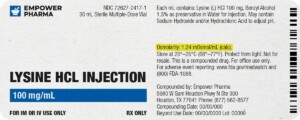
Given the vastness and uniqueness of individualized compounded formulations, it is impossible to list every potential compound we offer. To inquire if we currently carry or can compound your prescription, please fill out the form located on our Contact page or call us at (877) 562-8577.
We source all our medications and active pharmaceutical ingredients from FDA-registered suppliers and manufacturers.

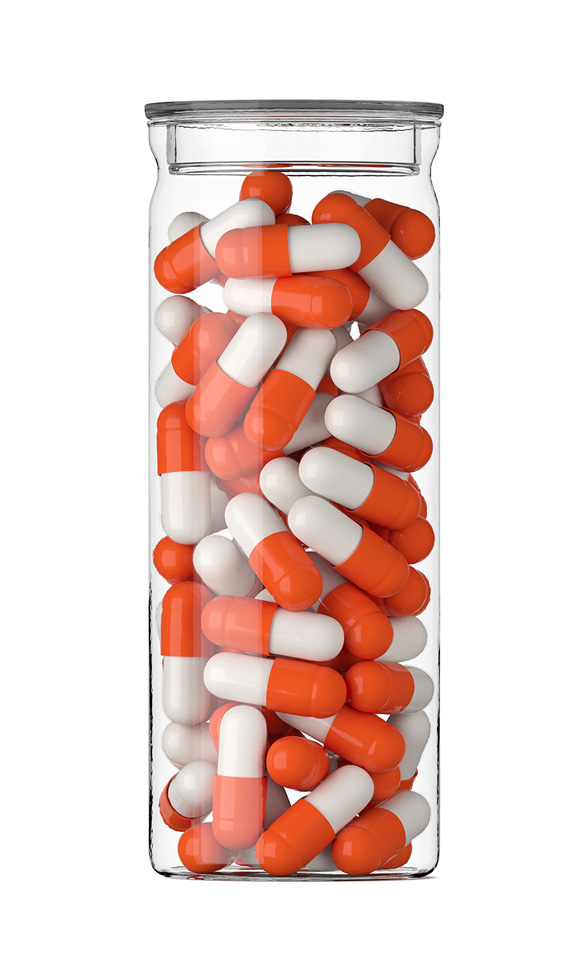
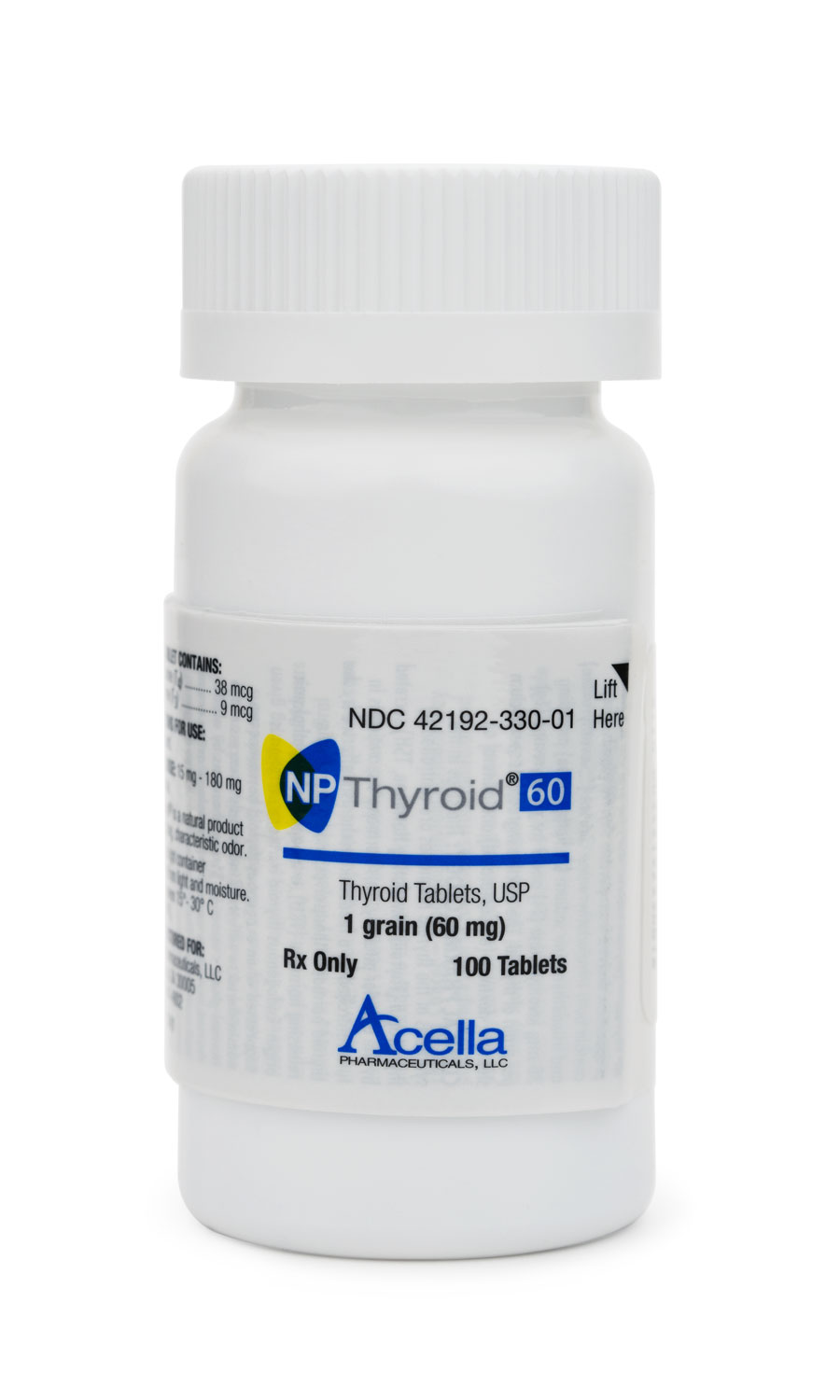 Thyroid Tablets
Thyroid Tablets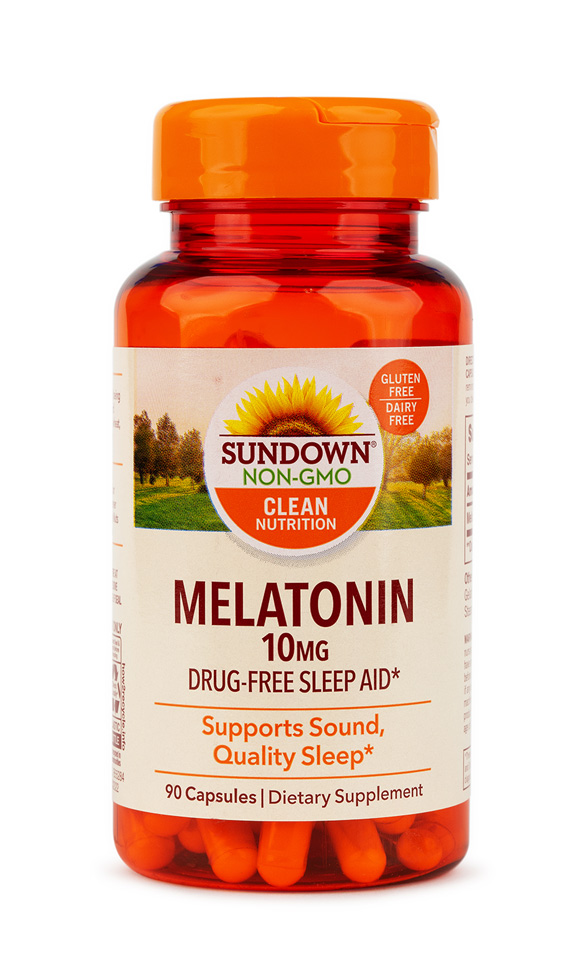 Melatonin Capsules
Melatonin Capsules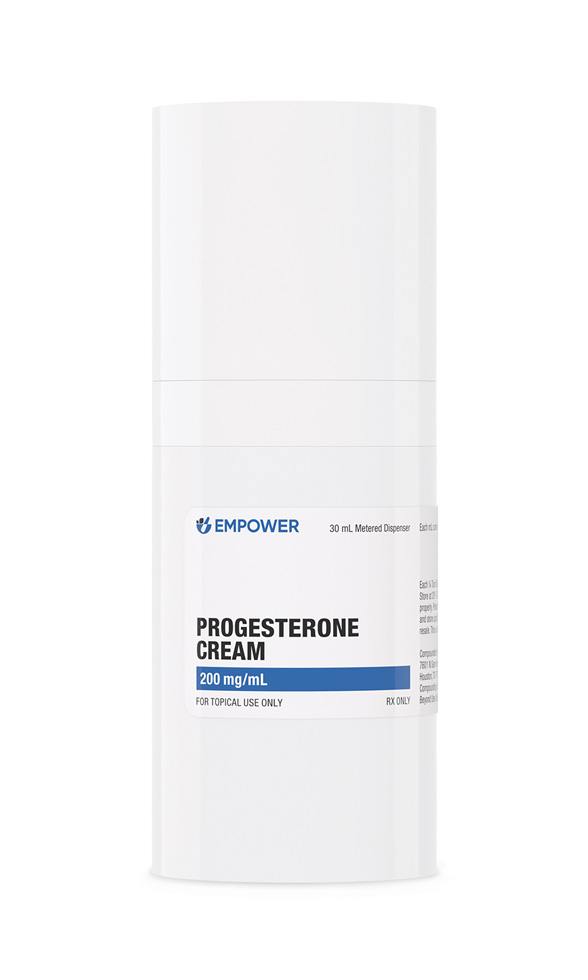 Progesterone Cream
Progesterone Cream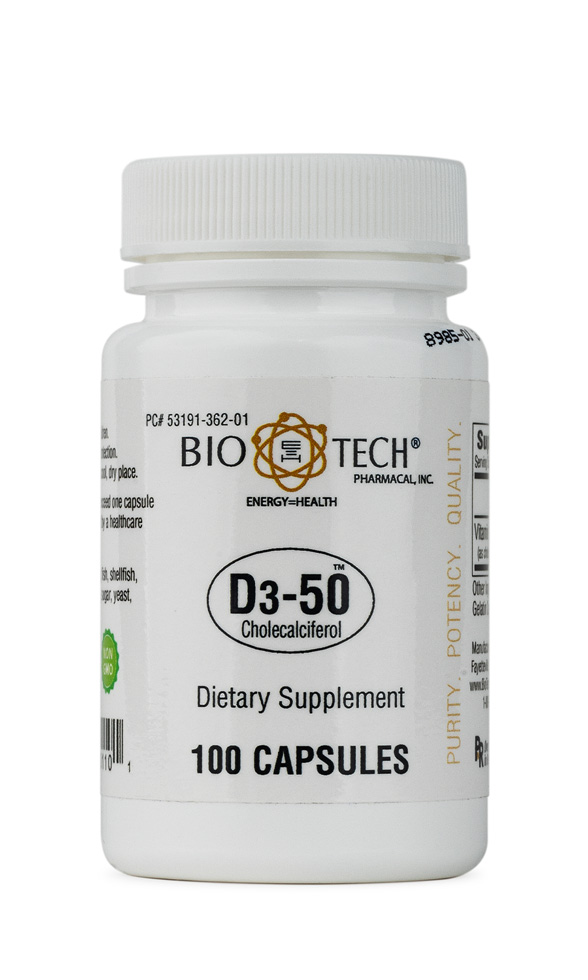 Vitamin D3 (Cholecalciferol) Capsules
Vitamin D3 (Cholecalciferol) Capsules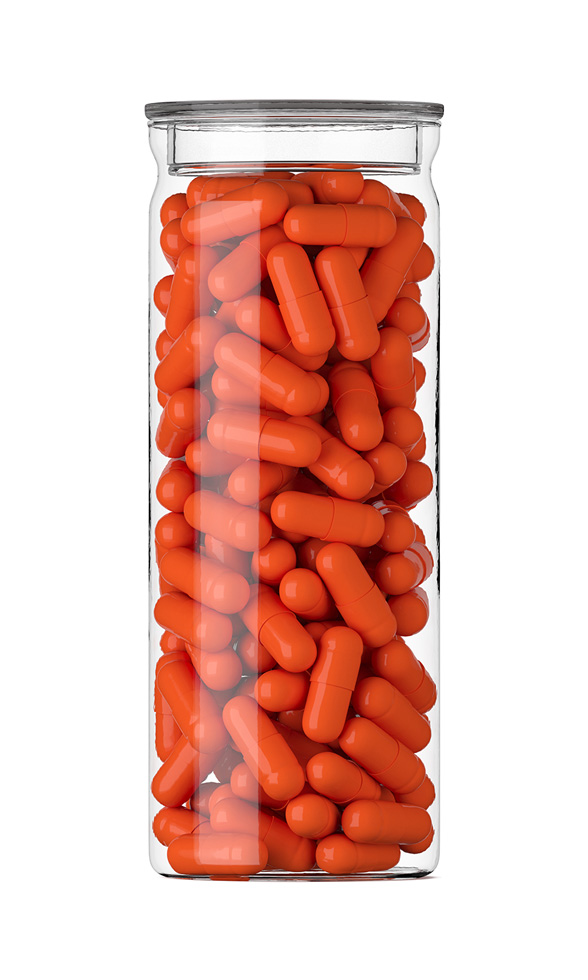 7-Keto DHEA Capsules
7-Keto DHEA Capsules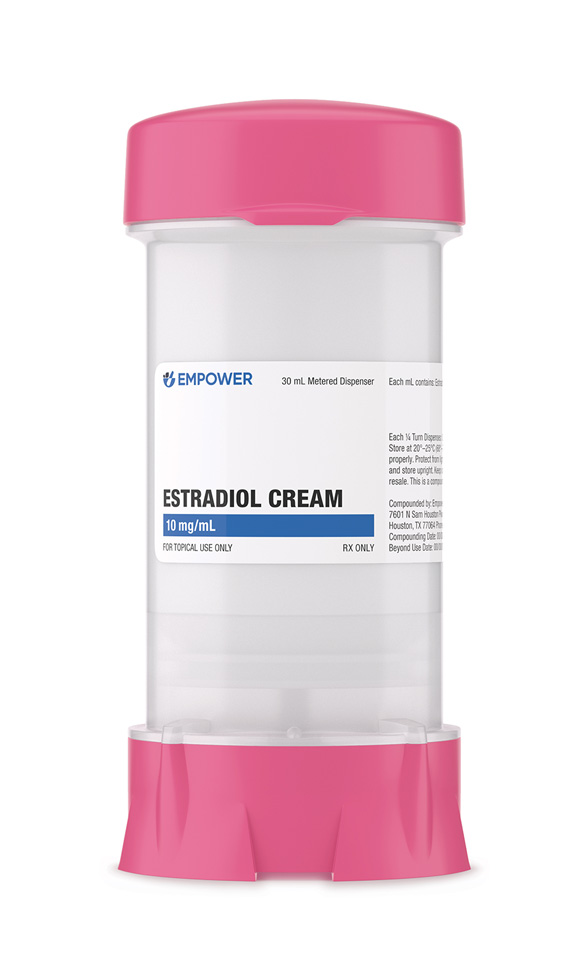 Estradiol Cream
Estradiol Cream Testosterone Troches
Testosterone Troches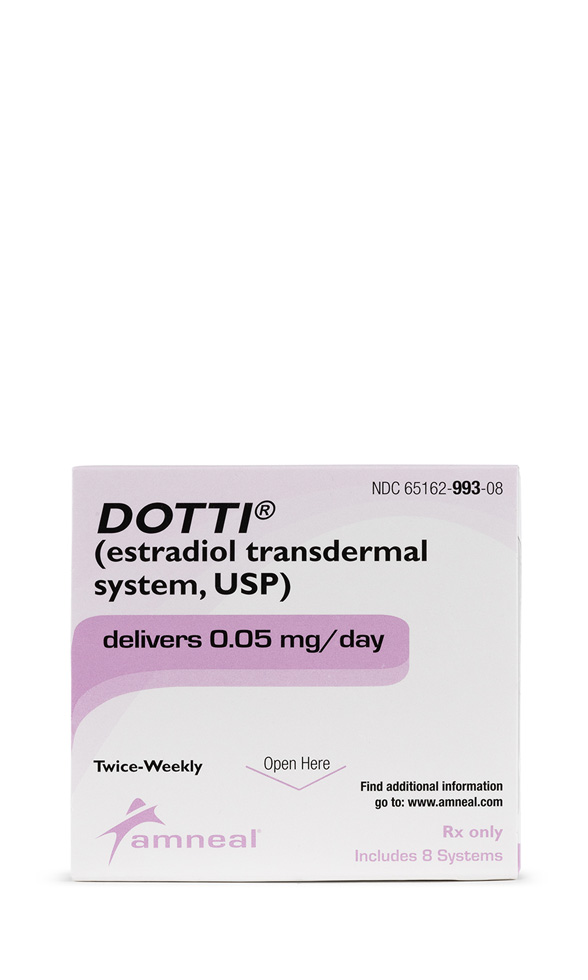 Estradiol Patch
Estradiol Patch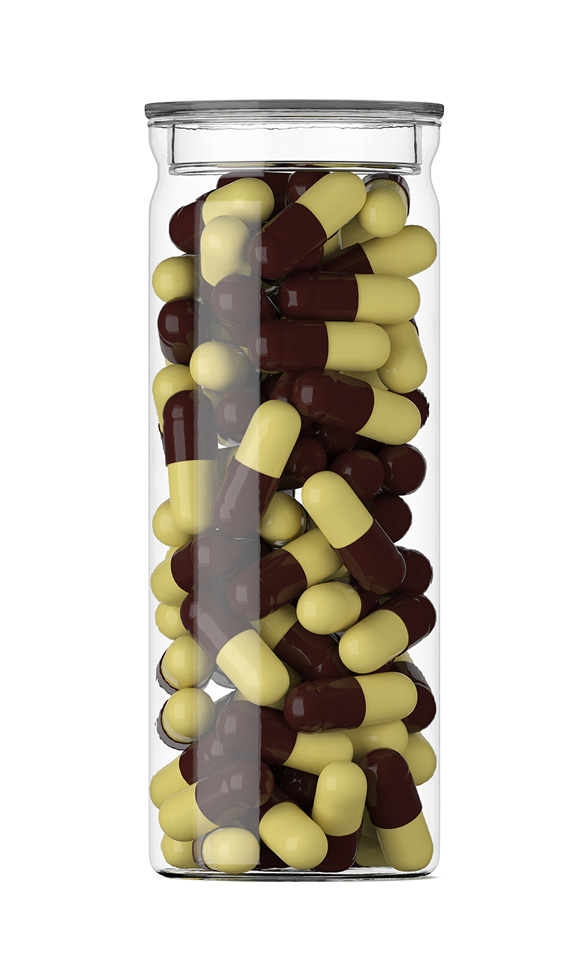 DHEA Capsules
DHEA Capsules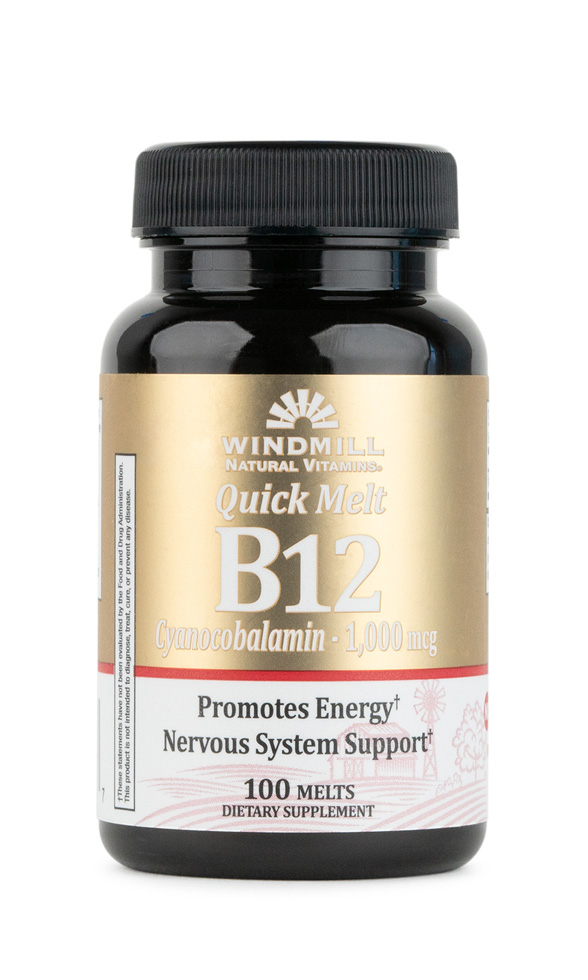 Cyanocobalamin Tablets
Cyanocobalamin Tablets